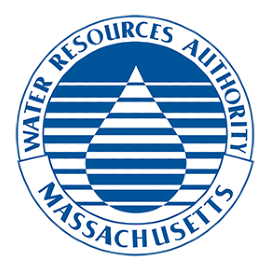Toxic substances from homes, industries and storm runoff can cause serious problems if allowed to enter our sewer system uncontrolled. Even the most advanced wastewater treatment systems are not designed to treat and remove metals, petroleum, chemicals, and many organics; these pollutants must be addressed at their source. Excessive levels of such chemicals can limit MWRA's use of wastewater sludge as fertilizer, threaten the marine environment or hinder the treatment process.
To reduce toxic discharges at their source, TRAC administers MWRA's Industrial Pretreatment Program under the Federal Clean Water Act. TRAC regulates industrial dischargers in accordance with its Sewer Rules and Regulations (360 CMR 10.00) and works with industries to encourage voluntary reductions in their toxic chemical use.
Regulations
The MWRA's regulations regarding what can be discharged into the sewer system can be found on our Sewer Use and Discharge Regulations Page.
Permit Applications
TRAC permit applications and instructions are available for download on our TRAC Permits page.
Incentive and Other Program Charges
In MWRA’s Toxic Reduction and Control Department established permitting and monitoring charges for all Sewer Use Discharge Permits (SUDPs). The charges are explained in the Sewer Use Regulations (360 CMR 10.101-10.104).
Household Hazardous Waste
Households are also an important source of toxic chemicals due to the careless dumping of toxic products down household drains. Using environmentally safe alternatives instead of many household chemical products is usually cheaper and as effective.
For information on where to take household hazardous wastes, contact your local Department of Public Works. MWRA's guide to household hazardous waste, A Healthy Environment Starts at Home, will help you identify products that could be a hazard and show you dozens of safe, nontoxic alternatives.
- To learn about MWRA's testing and analytical capabilities go to: Laboratory Services
Reports, Procedures and Publications
- D1-Dental Facility Biennial Compliance Report - 2024
For operations during 2022 and 2023. Updated: July 1, 2024 - Annual G1 Compliance Report for Photo Processing and Printing Operation
Updated February 2024 - G2 Food Processing Biennial Compliance Report - 2024
For operations during 2022 and 2023. Updated: 05/31/2024
A Healthy Environment Starts at Home
MWRA's guide to household hazardous waste will help you identify products that could be a hazard and show you dozens of safe, non-toxic alternatives.
Mercury in Dental Facilities
This study found that dental facilities are a significant source of mercury in the MWRA waste stream.
Industrial Waste Report
TRAC submits an Industrial Waste Report to the EPA every October which reports on the progress of the Industrial Pretreatment Program from July 1 through June 30.
Industrial Pretreatment Program Sampling Procedures Protocol
Significant Industrial Users in Significant Non Compliance for violations in FY23
TRAC Organization and Contacts

Matthew Dam
Director
(617) 305-5633, matthew.dam@mwra.com
Tracy McGrath
Sr. Program Manager, Compliance
(617) 305-5647, tracy.mcgrath@mwra.com
Peter Yarossi
Sr. Program Manager, Field Ops & Permitting
(617) 305-5671, peter.yarossi@mwra.com
Christopher Crowley
Program Manager, Inspection/Permitting Unit
(617) 305-5665, christopher.crowley@mwra.com
Shawn Owen,
Program Manager, Monitoring
617-305-5659, shawn.owen@mwra.com
Compliance Coordinators and Industrial Coordinators by Municipality
Each municipality is assigned an Industrial Coordinator and a Compliance Coordinator.
Industrial Coordinators are responsible for inspecting and permitting to industrial users in that municipality. Contact List
Compliance Coordinators are responsible for issuing Notices of Violation and overseeing escalated enforcement actions. Contact List
Pretreatment Program and Federal Clean Water Act
Congress passed the Clean Water Act in part to set water quality standards for water bodies that receive effluent from sewage treatment systems. The Boston Harbor cleanup came about from a lawsuit by the cities of Boston and Quincy against the Metropolitan District Commission (MWRA's predecessor) for failing to comply with the Clean Water Act. MWRA was formed to bring Boston's metropolitan sewer system and Boston Harbor into compliance with a court order, a result of this lawsuit. The Clean Water Act also requires that businesses and industries that discharge into the sewer system be regulated through an industrial pretreatment program. TRAC administers the Industrial Pretreatment Program for the MWRA service area.
